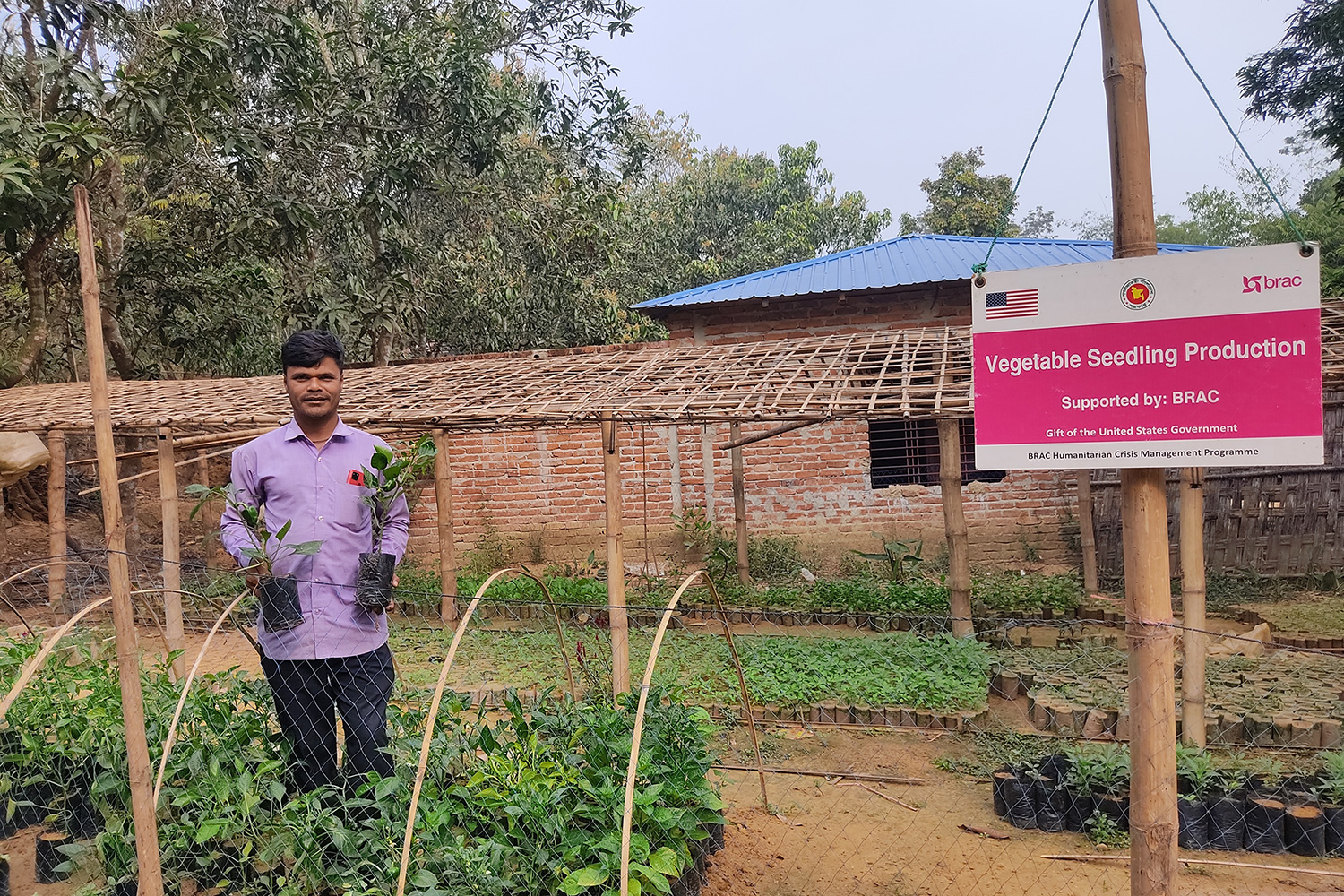Ismail’s journey to success in Cox’s Bazar
In Cox’s Bazar, Bangladesh, where nearly a million refugees shelter, Ismail once faced limited opportunities and was burdened by debt. Today, he oversees a thriving nursery and has renewed hope for his family.
BY BRAC
Ismail Hasan, a 35-year-old member of the host community, lives to the south of Cox’s Bazar city, Bangladesh, in an area called Shilerchora, Rajapalong, Ukhiya. He supports a family of six, including three sons and one daughter.
Following the mass displacement from neighboring Myanmar, Cox’s Bazar has become home to nearly 1 million Rohingya refugees, making it the world’s largest refugee settlement. The district, encompassing 1.7 percent of Bangladesh’s land mass, lies along the southeastern coast with 1.9 percent of the country’s population of nearly 172 million. Approximately 600,000 individuals from the host community live around the 33 densely populated Rohingya refugee camps. The presence of the Rohingya, concentrated primarily in the upazilas (Sub-districts) of Ukhiya and Teknaf, directly or indirectly impacts both the host community and the 2.7 million inhabitants of the entire Cox’s Bazar district.
Last year, Ismail managed a small vegetable nursery on approximately 2,177 square feet of land in his yard, funded by a loan. Despite his efforts, the earnings from his nursery could not meet his family’s needs, and he struggled to repay the loan.
“I was burdened by the loan, which made my life miserable,” he recalls.
Ismail faced difficulties in maintaining and protecting his seedlings primarily due to financial constraints and a lack of technical know-how, leading to losses.
When approached by BRAC staff working on a project funded by the U.S. Department of State’s Bureau of Population, Refugees, and Migration (PRM), he expressed his desire to expand his nursery.
Recognizing his potential and assessing his family’s needs and available land, the project team selected him as a vegetable seedling producer. In March 2023, Ismail received training on homestead gardening and received input support for the project, including seeds, bamboo, shed nets, and fencing nets to expand his nursery.
With the project’s technical support, his nursery flourished, enabling year-round seedling production. A modern shed provided by the project ensured a suitable environment for seedlings, protecting them from adverse weather conditions. Consequently, he began selling quality seedlings daily, earning BDT 525 – 875 (USD 4.82 – 8).
His success inspired neighbors to expand their vegetable production, further enhancing the community’s economic prospects. With the increased income, Ismail was able to hire an employee and acquire an additional van for seedling sales.
“With the technical and input support from this project, I expanded my nursery and managed to repay most of my loans,” he explains with pride.
Ismail’s story illustrates the transformative power of targeted support and empowerment initiatives. From struggling with debt to emerging as a successful seedling producer, he epitomizes the positive outcomes achievable through comprehensive interventions.
“Thanks to the project staff and to those who guided me by visiting my nursery so many times,” he says.
